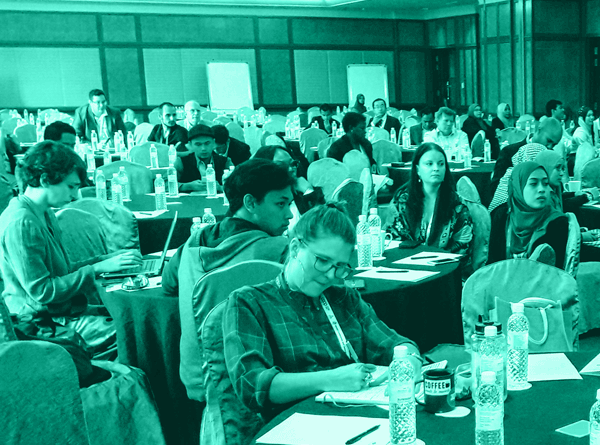Does the future of work really belong to the youth?
26 January 2018
On 15 November 2017, CICOPA, the International Co-operative Alliance’s sectorial organisation for industry and services, has organised in Kuala Lumpur a workshop called “The future of work is ours!”, one of the key actions under the ongoing WE OWN IT! campaign on youth co-operative entrepreneurship.
Visit the WE OWN IT! website
Six young and ex-young co-operators discussed challenges the co-operative movement is facing today: how to attract more young people and how to ensure intergenerational transmission among senior and junior co-operators. More than 30 participants coming from 12 different countries around the globe took part to the workshop.
Co-operatives managed by students have been discussed with examples from France (Solidarité Etudiante) and Indonesia (Kopindo): characterised by their independence and democracy they bring young people in the centre of the control process, allowing them to be their own leaders and to claim for their interests. They are often the place for social experimentation where young people create synergies to fight together precarious work and in favour of fair pay (E.g. pedicab drivers’ co-operative platform in Indonesia, Cyclocoop in France).
Another aspect discussed in the workshop was the intergenerational transmission and solidarity among senior and junior co-operators. By their nature, co-operative have tools for such transmission (e.g. indivisible reserves, democratic governance) but young co-operators still face obstacles if they want to be part of the management.
Training, empowering and power transmission need to be improved in order to ensure a better autonomy for youth. Several initiatives already exist like collaboration with universities for “self-certification” in France, or projects like COOPUP and Di mano in mano in Italy promoting solidarity and reciprocity among senior and junior co-operators.
In societies dominated by older generations, like in Japan, the worker co-operatives’ movement helps to maintain a democratic relation with the various parts, including youth. In Botswana for instance, young people contribute to the modernisation of co-operatives, but need support, like training or mentoring, to be able to go further.
The question of “youth identity” was also raised during the workshop: young people need to define what do they share in common in order to undertake effective action. Economic citizenship can be one aspect of this identity. Alliances with youth organisations and identification of common fights are essential for young co-operators willing to contribute to the transformation of the society.
One of the workshop conclusions was whether the “youth ceiling” is a generational or the co-operative movement issue, it needs to be broken in the interest of the whole movement: regeneration and the future of it cannot be conceived without youth.

